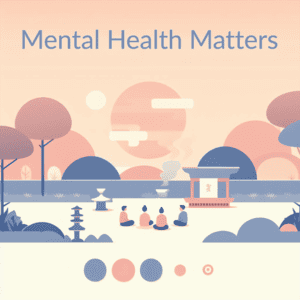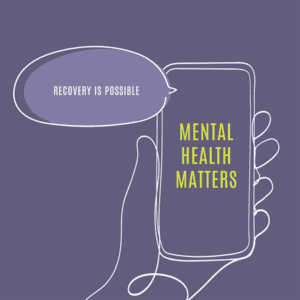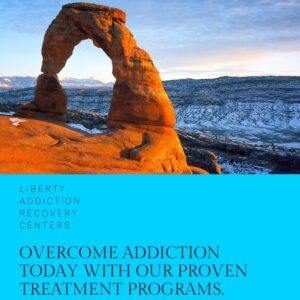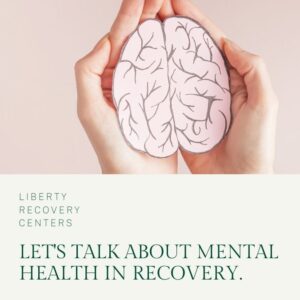 Alcohol addiction can be a challenging and complex condition to overcome. While detoxification and abstinence are essential components of recovery, addressing mental health issues is equally crucial. For individuals struggling with alcohol addiction in Utah, look for comprehensive care that prioritizes mental health and promotes long-term sobriety.
Alcohol addiction can be a challenging and complex condition to overcome. While detoxification and abstinence are essential components of recovery, addressing mental health issues is equally crucial. For individuals struggling with alcohol addiction in Utah, look for comprehensive care that prioritizes mental health and promotes long-term sobriety.
In this article, we will explore the unique challenges faced by individuals seeking treatment for alcohol addiction in Utah and the importance of prioritizing mental health in the recovery process.
We will discuss the role of alcohol treatment centers in providing individualized care, highlighting the various treatment modalities offered, including detoxification, therapy, counseling, and support groups. Additionally, we will examine the holistic approaches, innovative therapies, and aftercare resources available to support individuals in achieving lasting recovery.
Key Takeaways:
- Addressing mental health is crucial in achieving long-term sobriety from alcohol addiction.
- Specialized alcohol treatment centers in Utah offer comprehensive care that prioritizes mental health.
- Alcohol treatment centers offer various treatment modalities, including detoxification, therapy, counseling, and support groups.
- Holistic approaches and innovative therapies are utilized in alcohol treatment centers to address the physical and mental aspects of addiction.
- Aftercare resources such as sober living arrangements, support groups, counseling services, and relapse prevention programs are vital in maintaining sobriety.
- Choosing the right alcohol treatment center in Utah involves considering factors such as accreditation, licensing, staff qualifications, treatment approaches, facilities, and location.
Understanding Alcohol Addiction and Mental Health
 Alcohol addiction is a complex disorder that affects not only physical health but also mental health. The use of alcohol can have harmful effects on the brain and lead to the development of mental health disorders such as anxiety, depression, and trauma. The relationship between alcohol abuse and mental health is bidirectional, with each issue potentially exacerbating the other.
Alcohol addiction is a complex disorder that affects not only physical health but also mental health. The use of alcohol can have harmful effects on the brain and lead to the development of mental health disorders such as anxiety, depression, and trauma. The relationship between alcohol abuse and mental health is bidirectional, with each issue potentially exacerbating the other.
Individuals with alcohol addiction often use alcohol as a coping mechanism to deal with underlying mental health issues. However, alcohol use can also worsen these conditions, creating a vicious cycle that can be challenging to break without proper treatment. It is crucial to address both alcohol addiction and mental health concerns simultaneously to ensure a successful recovery.
Dual diagnosis treatment is a comprehensive approach that addresses both alcohol addiction and co-occurring mental health disorders. This approach involves a comprehensive assessment to identify underlying mental health conditions and develop specialized treatment plans tailored to individual needs.
The Role of Alcohol Treatment Centers in Utah
Alcohol addiction is a complex condition that requires specialized care and treatment. Alcohol treatment centers in Utah play a crucial role in providing comprehensive, evidence-based care to individuals struggling with alcohol addiction. These centers offer a range of treatment modalities designed to address the physical, emotional and psychological aspects of addiction.
At alcohol treatment centers in Utah, individuals can expect to receive personalized treatment plans tailored to their unique needs. The centers offer a range of treatment modalities, including detoxification, therapy, counseling, and support groups. Treatment may be provided on an inpatient or outpatient basis, depending on the severity of the addiction and the individual’s specific needs.
 The relatively high number of rehab facilities in Utah is partly attributed to the state’s unique societal and geographical attributes. Utah’s wholesome reputation, fostered by the presence and values of local religious beliefs, makes it an attractive place for individuals seeking a conducive environment for recovery. Moreover, despite having a drug usage rate that’s much lower than the national average, Utah faces a significant challenge with drug-related deaths, which surpasses the number of deaths from car accidents or firearms in the state. The presence of numerous treatment centers is crucial for addressing this pressing public health issue.
The relatively high number of rehab facilities in Utah is partly attributed to the state’s unique societal and geographical attributes. Utah’s wholesome reputation, fostered by the presence and values of local religious beliefs, makes it an attractive place for individuals seeking a conducive environment for recovery. Moreover, despite having a drug usage rate that’s much lower than the national average, Utah faces a significant challenge with drug-related deaths, which surpasses the number of deaths from car accidents or firearms in the state. The presence of numerous treatment centers is crucial for addressing this pressing public health issue.
Additionally, rehab centers in Utah often leverage the state’s natural environment as part of their treatment programs. The extraordinary outdoor activities available in Utah are seen as beneficial for individuals going through addiction recovery, providing a holistic approach to treatment that extends beyond conventional therapy6.
Many alcohol treatment centers in Utah recognize the importance of addressing mental health as part of the recovery process, but some may put more importance on the issue than others. That is why it’s so important to know what to ask when calling a rehab. Many individuals struggling with alcohol addiction have co-occurring mental health disorders such as anxiety, depression, or trauma. The centers take a holistic approach to treatment, which means that they address both addiction and mental health concerns simultaneously.
Holistic Approaches to Alcohol Treatment
Alcohol addiction is a complex condition that affects both the body and mind. Therefore, effective treatment requires a holistic approach that addresses both physical and mental symptoms of addiction. Alcohol treatment centers in Utah use evidence-based therapies, as well as complementary therapies, to provide comprehensive care to individuals seeking treatment for alcohol addiction.
Cognitive-behavioral therapy (CBT) is a common evidence-based therapy used in alcohol treatment centers. CBT helps individuals understand the relationship between their thoughts, feelings, and behaviors and how these contribute to addiction. Through CBT, individuals learn coping skills and strategies to overcome negative thought patterns and behaviors related to addiction.
Dialectical behavior therapy (DBT) is another evidence-based therapy used to treat alcohol addiction. DBT helps individuals manage difficult emotions, improve interpersonal relationships, and develop mindfulness skills. Through DBT, individuals learn to regulate their emotions and reduce impulsive behaviors that can lead to alcohol abuse.
Eye Movement Desensitization and Reprocessing (EMDR): A method aimed at aiding individuals in processing traumatic experiences by activating the brain’s inherent healing mechanisms through directed eye movements.
Acceptance and Commitment Therapy (ACT): Employs a mindfulness-centered method to assist individuals in embracing their thoughts and feelings, thereby fostering mental health and bolstering resilience against conditions such as anxiety and depression.
In addition to evidence-based therapies, alcohol treatment centers in Utah also offer complementary therapies that help individuals address underlying emotional and mental health issues. These therapies may include:
| Complementary Therapy | Description |
|---|---|
| Yoga and Meditation | Teaches relaxation techniques and mindfulness to reduce stress and promote overall well-being. |
| Art Therapy | Allows individuals to express their emotions and feelings through creative expression and art-making. |
| Recreation Therapy | Involves interacting with peers in new situations and helps addicts learn to have fun in a sober life. |
These holistic approaches help individuals address the root causes of addiction and promote overall wellness. By combining evidence-based therapies with complementary therapies, alcohol treatment centers in Utah can provide individuals with the tools they need to achieve lasting sobriety.
Dual Diagnosis Treatment for Co-occurring Disorders
 When individuals struggle with both mental health disorders and alcohol addiction, it is crucial to provide specialized treatment that addresses both conditions simultaneously. This is known as dual diagnosis treatment, which can significantly improve outcomes for individuals seeking recovery.
When individuals struggle with both mental health disorders and alcohol addiction, it is crucial to provide specialized treatment that addresses both conditions simultaneously. This is known as dual diagnosis treatment, which can significantly improve outcomes for individuals seeking recovery.
Alcohol treatment centers in Utah recognize the importance of dual diagnosis treatment and provide comprehensive assessments to identify co-occurring disorders. Treatment plans are then tailored to address both the alcohol addiction and the mental health disorder.
Integrated care is essential in dual diagnosis treatment, as both conditions can have a significant influence on each other. Treating just one condition may not be effective, as it may not address the root cause of both conditions. Alcohol treatment centers in Utah offer evidence-based therapies to address both the physical and mental aspects of addiction and co-occurring disorders.
Examples of evidence-based therapies utilized in dual diagnosis treatment include cognitive-behavioral therapy (CBT) and dialectical behavior therapy (DBT). These therapies help individuals identify negative thought patterns and behaviors and teach them healthy coping mechanisms to replace them.
Other complementary therapies like art therapy, music therapy, recreation therapy, and mindfulness meditation may also be incorporated into dual diagnosis treatment. These therapies can help individuals express themselves, reduce stress, and improve their overall mental well-being.
Overall, dual-diagnosis treatment is crucial for individuals with co-occurring disorders. By addressing both mental health disorders and alcohol addiction simultaneously, long-term sobriety and improved mental health can be achieved.
The Importance of Aftercare and Continued Support
Completing a treatment program is a significant accomplishment, but it is only the first step toward a successful recovery from alcohol addiction. Aftercare and continued support are critical in maintaining sobriety and preventing relapse. Alcohol treatment centers in Utah offer various aftercare resources to support individuals in their recovery journey.
Sober Living Arrangements
Sober living arrangements provide individuals with a supportive and structured environment to focus on their recovery without distractions. These arrangements offer a safe and drug-free living space where residents can receive peer support, counseling, and other resources. Alcohol treatment centers in Utah can help individuals identify reputable sober living arrangements that cater to their specific needs.
Support Groups
Support groups such as Alcoholics Anonymous (AA) offer a supportive community for individuals in recovery. These groups provide a safe space where individuals can share their experiences, struggles, and successes with others who understand their journey. Alcohol treatment centers in Utah can provide information and referrals to AA meetings and other support groups in the community. Want to learn more about AA? Check out are article about AA 10th step and The AA Promises.
Counseling Services
Counseling services offer ongoing support and resources to individuals as they navigate their recovery journey. Counseling sessions can help individuals identify triggers, develop coping skills, and work through any issues and challenges that arise. Alcohol treatment centers in Utah offer individual and group counseling sessions to support individuals in their recovery.
Relapse Prevention Programs
Relapse prevention programs provide individuals with the skills and tools they need to maintain their sobriety after completing a treatment program. These programs educate individuals on the warning signs and triggers of relapse, provide coping strategies, and offer ongoing support. Alcohol treatment centers in Utah offer relapse prevention programs to support individuals in maintaining their recovery.
Finding the Right Alcohol Treatment Center in Utah
Finding the right alcohol treatment center in Utah can be a challenging task, but it’s crucial to prioritize your mental health and seek help from a reputable facility that offers comprehensive care. Here are some factors to consider when conducting your research:
| Factor | Considerations |
|---|---|
| Accreditation and Licensing | Ensure the facility is accredited and licensed by the state, indicating adherence to industry standards and regulations. The Joint Commission also accredits Liberty Addiction Center for its national quality approval. |
| Staff Qualifications | Look for a facility with experienced and qualified staff, including licensed therapists, medical professionals, and support staff. Meet the staff at Liberty Addiction Recovery. |
| Treatment Approaches | Consider the variety of treatment approaches offered, including evidence-based therapies and complementary modalities. |
| Facilities and Amenities | Explore the facilities and amenities offered, including comfortable living accommodations, recreational activities, and other amenities that can enhance the treatment experience. |
| Review | Consider the facility’s reviews and whether it’s peer-approved. |
Conclusion
Alcohol addiction can be a challenging and complex issue, but it is possible to overcome it with the proper support and treatment. Prioritizing mental health in recovery is crucial for long-term sobriety and overall well-being.
If you or a loved one is seeking treatment for alcohol addiction in Utah, it is essential to find a reputable alcohol treatment center that offers comprehensive care. Consider factors such as accreditation, licensing, staff qualifications, treatment approaches, facilities, and location. Conduct research, read reviews, and seek recommendations to make an informed decision.
Embark on a transformative recovery journey at Liberty Addiction Recovery Center in Orem, Utah. Our dedicated team and comprehensive aftercare resources, ranging from sober living arrangements to relapse prevention programs, ensure a supportive pathway to sustained sobriety. Your healthier, happier life awaits, and with our continual support, every step forward is a stride towards lasting recovery. Call Liberty Addiction Recovery Center today, and let the journey to a fulfilling life, free from alcohol, begin. Send us a message here.
FAQ
Q: What is the role of alcohol treatment centers in Utah?
A: Alcohol treatment centers in Utah play a vital role in providing comprehensive and specialized care for individuals struggling with alcohol addiction. They offer various treatment modalities such as detoxification, therapy, counseling, and support groups. These centers create personalized treatment plans tailored to individual needs.
Q: What are some holistic approaches to alcohol treatment?
A: Alcohol treatment centers in Utah utilize holistic approaches that integrate evidence-based therapies like cognitive-behavioral therapy (CBT) and dialectical behavior therapy (DBT) with complementary therapies such as yoga, meditation, art therapy, and recreation therapy. These approaches address both the physical and mental aspects of addiction.
Q: Why is dual diagnosis treatment necessary for individuals with co-occurring disorders?
A: Dual diagnosis treatment is crucial for individuals with co-occurring mental health disorders and alcohol addiction. Alcohol treatment centers in Utah provide comprehensive assessments and specialized treatment plans to address both conditions simultaneously. Integrated care improves long-term recovery outcomes.
Q: What innovative therapies and modalities are offered by alcohol treatment centers in Utah?
A: Alcohol treatment centers in Utah offer innovative therapies and modalities such as neurofeedback, virtual reality therapy, and adventure therapy. These therapies help individuals address underlying issues, promote self-discovery, and enhance overall well-being.
Q: Why is aftercare and continued support important in maintaining sobriety?
A: Aftercare and continued support are essential in maintaining sobriety after completing a treatment program. Alcohol treatment centers in Utah provide various resources, including sober living arrangements, support groups, counseling services, and relapse prevention programs. Ongoing support helps prevent relapse and maintain long-term recovery.
Q: How can I find the right alcohol treatment center in Utah?
A: To find the right alcohol treatment center in Utah, consider factors such as accreditation, licensing, staff qualifications, treatment approaches, facilities, and location. Conduct research, read reviews, and seek recommendations to make an informed decision.






